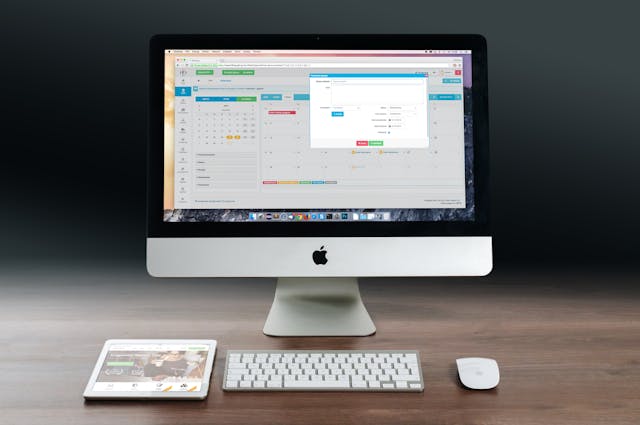Managing finances in property management can be overwhelming without the right tools. Whether it’s handling rent payments, tracking expenses, or managing multiple properties, effective accounting software can save time and reduce stress. But with so many options available, choosing the best one for your needs can be a challenge. Here’s a complete guide to the best accounting software for property management in 2024, to help you find the perfect solution for your business.
1. Buildium
Best For: Small to medium-sized property management companies
Buildium is a popular choice among property managers due to its comprehensive features and user-friendly interface. It offers everything from accounting to tenant screening and maintenance management.
Key Features:
- Full Accounting Suite: Track income and expenses, generate financial reports, and reconcile bank accounts.
- Automated Payments: Set up automatic rent reminders and online payments for tenants.
- Budgeting Tools: Plan and manage budgets for each property.
- Vendor Tracking: Manage and pay vendors directly through the platform.
- Reporting: Generate detailed financial reports, including profit and loss statements and balance sheets.
Pricing:
Starts at around $52 per month for up to 20 units, with additional costs for add-ons like tenant screening and premium support.
Pros:
- User-friendly and easy to navigate.
- Strong accounting and reporting features.
- Integrated property management tools.
Cons:
- Limited customization for reports.
- Can become expensive as you add more units.
2. AppFolio Property Manager
Best For: Growing property management businesses with residential, commercial, and community association properties
AppFolio offers a robust set of features designed to handle complex property management needs, making it a great choice for businesses managing a diverse portfolio.

Key Features:
- Advanced Accounting Capabilities: Includes automated accounts payable, bank reconciliations, and recurring transactions.
- Mobile Access: A fully functional mobile app allows you to manage your properties on the go.
- Utility Management: Automate billing and track utility usage across properties.
- Online Payments: Tenants can pay rent online, and funds are deposited directly into your account.
- Customizable Reports: Create detailed and customizable financial reports.
Pricing:
Starts at $1.40 per unit per month, with a minimum monthly fee of $280.
Pros:
- Excellent for managing mixed portfolios.
- Strong mobile app functionality.
- Comprehensive accounting and property management features.
Cons:
- Higher cost for smaller portfolios.
- Steeper learning curve compared to other software.
3. Yardi Breeze
Best For: Property managers looking for a cloud-based solution that scales with business growth
Yardi Breeze is designed to be an easy-to-use, all-in-one platform that combines property management and accounting features. It’s suitable for both residential and commercial properties.
Key Features:
- Built-In Accounting: Track income and expenses, handle bank reconciliations, and generate financial statements.
- Tenant and Lease Tracking: Manage leases, track vacancies, and handle renewals.
- Online Payments and Maintenance: Tenants can pay rent online, and managers can track maintenance requests.
- Marketing Tools: Syndicate listings to multiple platforms and manage inquiries from one place.
- Owner Portal: Provide owners with access to property performance and financial reports.
Pricing:
Starts at $1 per unit per month, with a minimum of $100 per month.
Pros:
- Simple interface with minimal setup.
- Scalable pricing and features.
- Includes robust marketing tools.
Cons:
- Limited advanced features compared to Yardi Voyager.
- Reporting capabilities could be more flexible.
4. Rentec Direct
Best For: Independent landlords and small property management firms
Rentec Direct offers a straightforward and affordable solution for property managers who don’t need a lot of bells and whistles but still want a powerful accounting tool.
Key Features:
- Double-Entry Accounting: Includes general ledger, accounts payable, and income/expense tracking.
- Online Payments: Tenants can pay rent online, and owners can receive distributions.
- Tenant Screening: Integrated background checks and credit reports.
- Property Marketing: List vacancies on multiple websites from within the platform.
- Bank Reconciliation: Easily reconcile bank accounts to match transactions.
Pricing:
Starts at $45 per month for up to 10 units. Additional units and features are available for an extra cost.
Pros:
- Affordable and transparent pricing.
- Easy to use with a simple interface.
- Strong accounting and tenant management features.
Cons:
- Not ideal for very large property portfolios.
- Limited advanced features like custom reporting.
5. Propertyware
Best For: Single-family home managers and property management companies with large portfolios
Propertyware is designed specifically for single-family home property management but can handle larger portfolios as well. It’s known for its strong customization options and advanced features.
Key Features:
- Customizable Accounting: Flexible chart of accounts, automated accounting workflows, and comprehensive financial reporting.
- Maintenance Management: Track and manage maintenance requests, with the ability to assign work orders to vendors.
- Tenant and Owner Portals: Tenants can pay rent and request maintenance, while owners can view financial reports.
- Inspections Management: Schedule and track property inspections with detailed checklists and photo documentation.
- Marketing Tools: Syndicate listings to multiple rental sites and manage leads.
Pricing:
Starts at $1 per unit per month, with a minimum of $250 per month.
Pros:
- Highly customizable for specific business needs.
- Strong single-family home management features.
- Advanced reporting and workflow automation.
Cons:
- Higher minimum cost, making it less ideal for small portfolios.
- Steeper learning curve due to extensive customization options.
6. QuickBooks Online with Property Management Add-Ons
Best For: Property managers who are already familiar with QuickBooks and need a flexible accounting solution
QuickBooks Online is a versatile accounting software that, when combined with property management add-ons, can serve as a powerful tool for managing property finances.
Key Features:
- Comprehensive Accounting: Track income and expenses, manage invoices, and generate financial reports.
- Property Management Integrations: Use third-party add-ons like Stessa, TenantCloud, or Buildium to add property management capabilities.
- Automated Payments: Schedule recurring payments and reminders.
- Bank Reconciliation: Easily match transactions with bank statements.
- Tax Preparation: Simplifies tax preparation with detailed reports and integration with tax filing services.
Pricing:
Starts at $30 per month for QuickBooks Online, with additional costs for property management add-ons.
Pros:
- Highly flexible and customizable.
- Trusted accounting solution with extensive support.
- Can integrate with various property management platforms.
Cons:
- Requires add-ons for full property management functionality.
- Can become costly with additional integrations.
7. TenantCloud
Best For: Independent landlords and small property managers looking for a cost-effective solution
TenantCloud offers a free basic plan and affordable upgrades, making it an excellent choice for small-scale property managers or independent landlords.

Key Features:
- Online Payments: Tenants can pay rent online via ACH, credit, or debit card.
- Basic Accounting: Track income and expenses, generate basic financial reports.
- Tenant Management: Manage leases, screen tenants, and handle maintenance requests.
- Marketing Tools: Post vacancies to listing sites and manage applications.
- Insurance Tracking: Keep track of tenant and property insurance policies.
Pricing:
Free for up to 75 units, with premium plans starting at $12 per month.
Pros:
- Free basic plan for up to 75 units.
- Easy to use with a simple interface.
- Affordable premium features.
Cons:
- Limited advanced accounting features.
- Reporting capabilities are not as robust as some competitors.
How to Choose the Right Accounting Software for Your Property Management Business
Selecting the best accounting software depends on your specific needs, property portfolio size, and budget. Here are some factors to consider:
- Portfolio Size and Type: Some software is better suited for small residential portfolios, while others excel with large commercial properties or mixed portfolios.
- Feature Requirements: Identify the features that are must-haves for your business, such as tenant screening, online payments, advanced reporting, or maintenance management.
- Budget: Consider both the initial cost and any ongoing monthly or annual fees. Be sure to factor in additional costs for add-ons or premium features.
- User Experience: Opt for software that is easy to use and has good customer support. A steep learning curve can slow down your operations and increase frustration.
- Scalability: Choose a platform that can grow with your business, whether you’re managing 10 units or 1,000.
- Integration Capabilities: If you’re using other software for property management, make sure the accounting solution can integrate seamlessly with your existing tools.
Final Thoughts
The right accounting software can streamline your operations, improve financial transparency, and save you countless hours of work. Consider your business’s specific needs and choose a platform that not only fits your current requirements but also has the potential to support future growth. With the options outlined here, you’re well on your way to finding the best accounting software for your property management business in 2024.
